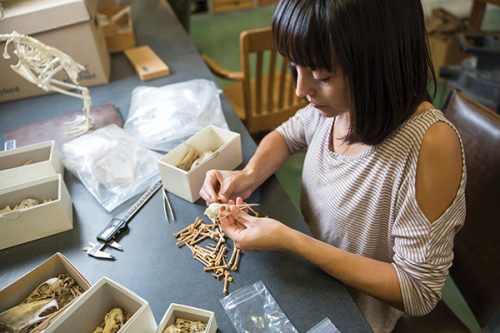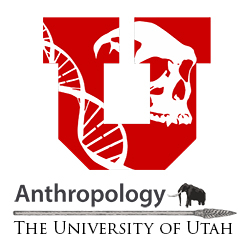Department of Anthropology
Support Students Today
Donations help support scholarships and fellowships for deserving anthropology students and make possible guest lectures by leaders in the field.
Prefer to give by phone?
Call us at 801-587-9310
For personal assistance with giving options, please contact giving@csbs.utah.edu
Undergraduate Programs

Anthropology Major
Anthropology is the comparative, evolutionary and historical study of human, and nonhuman primates.
Anthropology Minor
Because we study all aspects of humans, anthropology is holistic and inter-disciplinary and anthropologists work hand-in-hand with other sciences such as biology, physiology, sociology and psychology—just to name a few.
Integrative Human Biology Minor (IHB)
Engage in research in human form and function, human evolution and biological variation, human behavior, and the roles humans play in local and global ecosystems. Students will acquire the broad but rigorous background they will need as professionals in the 21st-century health sciences and many other fields that engage directly with aspects of human adaptation and welfare.
Have a question about anthropology? Ready to declare?
Events
-
Jul 11
Friday
Summer 2025 Second Half - Last day to withdraw from classes
-
Jul 24
Thursday
Holiday: Pioneer Day
-
Jul 25
Friday
Summer 2025 Full Term - Last day to reverse CR/NC option
-
Jul 25
Friday
Summer 2025 Second Half - Last day to reverse CR/NC option
-
Jul 28
Monday
Fall 2025 - Open enrollment
-
Jul 30
Wednesday
Summer 2025 Full Term - Classes end





